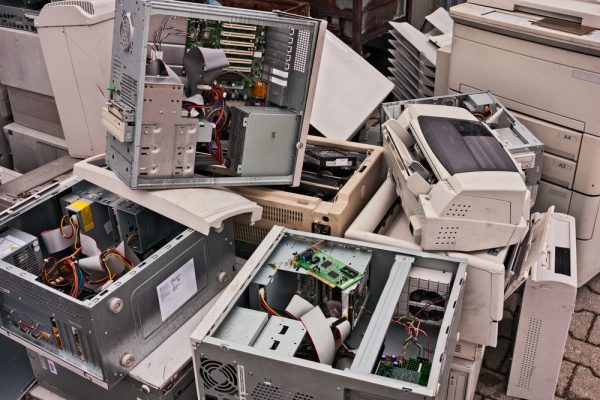Pandemic leads to increased focus on e-waste

The shift in working patterns prompted by COVID-19 has caused unnecessary short-term investment in technology, which will leave companies at risk with data being stored on a wide range of devices.
This is according to 78 percent of respondents to a new survey from data erasure specialist Blancco Technology Group, which also reveals 47 percent of large global enterprises have created roles responsible for implementing and ensuring compliance with e-waste policies specifically to deal with issues generated from the pandemic.
The survey explores current approaches to e-waste management and finds that while 44 percent of enterprises do have an e-waste policy in place for end-of-life device management, it is not yet being communicated or implemented.
"The flood of technology investment which followed the beginning of the pandemic has created clear issues for both e-waste and secure data management," says Alan Bentley, president of global strategy at Blancco. "The switch to remote work spurred on a wave of new device purchases, but these new, widely distributed devices have left enterprises feeling vulnerable. It's fascinating that so many businesses have implemented roles to manage the e-waste issue resulting from COVID-19, demonstrating corporate social responsibility (CSR), but also their concern around how these devices will be dealt with when they reach end-of-life."
Among other findings, 92 percent of enterprises surveyed agree that they need to take a serious view on ensuring all devices used to equip the workforce throughout the COVID-19 pandemic are appropriately stored and disposed of.
However, 47 percent of enterprises are uncertain about how best to communicate e-waste policies. This challenge is exacerbated by the fact that the task of being responsible for e-waste and CSR policy communications lacks ownership. 39 percent of respondents say the reason their e-waste policies haven’t been communicated is because no one had taken control of them.
35 percent of enterprises say their organizations carry out physical destruction of end-of-life equipment because it’s viewed as better for the environment. When new devices are no longer needed for remote work 28 percent say laptops will be erased to be resold. A further 27 percent say they will be erased to be reused internally, and 12 percent say they would be erased and recycled.
Bentley adds, "It's crucial that this issue is not overlooked and that these devices are appropriately disposed of. But it's just as crucial to ensure the safeguarding of sensitive data during that process. Appropriate data sanitization might at times be overlooked as an element of e-waste policies, but it is the perfect opportunity to engage data management best practices. Because not only will this reduce environmental impact, it will also remove the risk of a data breach when disposing of devices at end-of-life."
The full report is available on the Blancco site.
Image credit: ermess/Depositphotos.com
